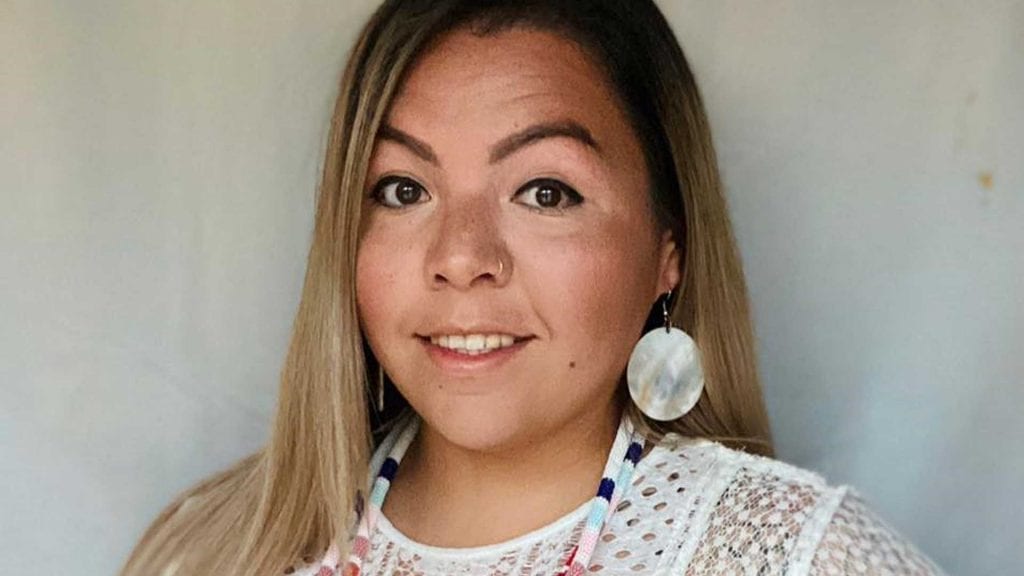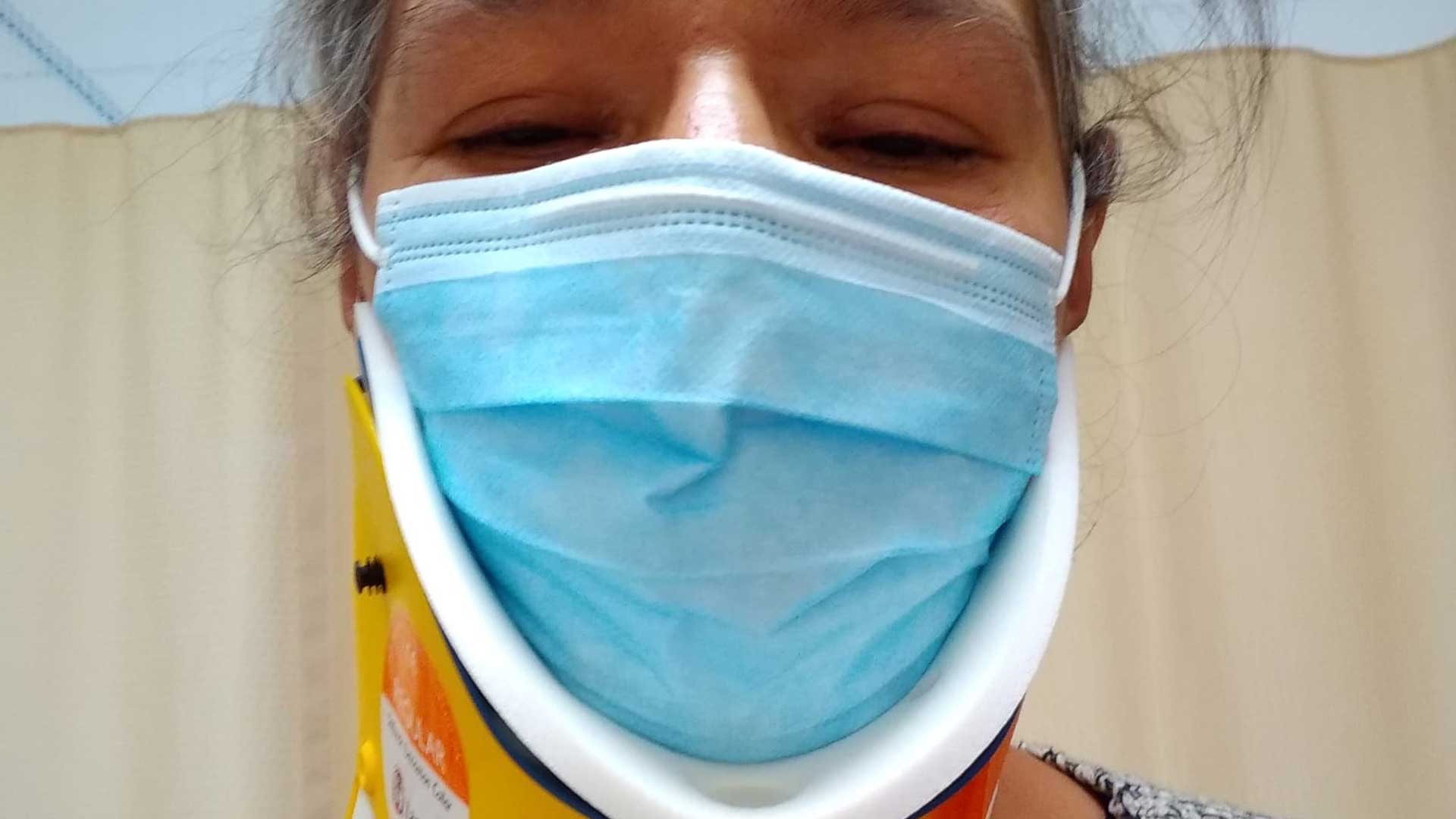
Family of Cheynna Gardner says she spent days in pain with collapsed lungs. Photo: Facebook
Rhonda Gardner was four hours away when her daughter Cheynna called from the Thunder Bay Regional Health Sciences Centre.
“She called me, and she was crying uncontrollably and she said she was in such real bad pain and was having a really difficult time to breathe,” Rhonda told APTN News in a phone interview.
The 30-year-old was in hospital for stomach surgery on Nov. 30 to correct a botched procedure she had a few years ago.
Rhonda was home in Eagle Lake First Nation looking after her grandchildren. She couldn’t visit her daughter due to COVID-19 restrictions.
It was after the surgery when Rhonda said she received the call from a distressed Cheynna.
Pain medication
“She said the nurse didn’t believe her and said she had enough pain medication already.”
She said her daughter told her the nurses said, “‘You’ve already had so much pain medication; how much have you been using?’ Basically implying that she was a junkie.”
Rhonda said she called the hospital numerous times to ask about Cheynna’s condition.
She was told her daughter’s vitals were stable. But three days later, on Dec. 2, she got another call from Cheynna.
“She said, ‘Mom, I can’t breathe, there’s something wrong. I know there’s something wrong.’”
That’s when Rhonda called Cheynna’s doctor, demanding tests be done.
Bloodwork and scan
After four days, a COVID test, bloodwork and a chest CT scan were performed. It was then confirmed that Cheynna had atelectasis in both lungs.
Atelectasis is a medical term for a collapsed lung and is a common respiratory complication after surgery.
“I’m glad he (the doctor) listened to me. The nurses had no regard – especially the one in recovery,” Rhonda said.
“Had they listened then, maybe she wouldn’t have been in the position for three days like that laying there. I picture my daughter laying there helpless in a recovery room. They just left her there in her own pain and agony and not believing her.”
Maryanne Matthews, communications and engagement lead at the hospital, sent APTN an email explaining Cheynna’s experience was “not in keeping with our hospital values and expectations, and as such this is being investigated.”
“Our Hospital is committed to learning everything possible from this to improve experiences going forward. We take very seriously our responsibility to ensure that all people receive culturally safe care.”

Gardner isn’t the only Indigenous person to claim they were discriminated against at the Thunder Bay Regional Health Sciences Centre.
Dawn George-Morrison, who lives in Thunder Bay, said she collided with a parked vehicle while riding her bike in late November.
“I hit my head, I banged my nose on the way down on the handlebars. It started bleeding right away,” she said.
In the emergency room, George-Morrison, 57, said a neck brace was put on as a precaution.
She said an hour later, she saw a doctor who accused her of being intoxicated.
“He asked me if I was intoxicated or if I was under the influence of drugs. (He said) ‘Why weren’t you paying more attention, you must have been under the influence or something, are you sure you weren’t high?’”
Walked out
George-Morrison, from the Anishinaabeg of Naongashiing First Nation five hours west of Thunder Bay, said she walked out of the ER in tears and visited a different doctor.
The hospital didn’t respond to a request for an interview about her allegation.
But George-Morrison said racism is a regular occurrence at the Thunder Bay hospital, which impacts a lot of First Nations people.
“Thunder Bay Regional Hospital is the only hospital in northwestern Ontario that we can go to. A lot of our people don’t have family physicians. It’s pretty much the only place to go to,” she said.
The role of racism in the healthcare system has been under the microscope since the Sept. 28 death of Joyce Echaquan in Quebec.
Echaquan live-streamed the mistreatment she was receiving from an unknown number of healthcare workers, who taunted her moments before she died in a hospital in Joliette, outside Montreal.
The 37-year-old Atikamekw Nation mother of seven from Manawan north of Joliette, went to the hospital because of stomach pain. While in her bed, she complained that she was being over medicated.
Quebec’s coroner has launched an investigation into her death.
The B.C. government also examined racism against Indigenous Peoples in healthcare and released a report earlier in December.
Read More:
APTN News coverage of Joyce Echaquan
Sol Mamakwa, an Oji-Cree member of the provincial parliament in northwestern Ontario, said what happened at the Thunder Bay hospital is “beyond disappointing” but not surprising.
“The way we’ve been treated for a long time, you learn to live with racism. It’s not a good way to live when you normalize things,” Mamakwa said in an interview.
“We have to understand that the systems that are there, were not created for Indigenous people. They’re working exactly the way they’re designed to which is to take away the rights of our people.”
While the investigation into Cheynna’s experience continues, Rhonda Gardner said she wants to see the nurses involved reprimanded.
“They should have been there the entire time showing compassion and kindness. But to me they treated her inhumanely,” she said.
“I don’t think a slap on the wrist is an answer, nor just a cultural course or training when it’s already engraved in your brain that it’s just another Anishinaabekwe looking for a fix.”
Traumatic experience
Rhonda said her daughter is now home in northwestern Ont., recovering from the traumatic experience and continuing breathing exercises prescribed by her doctor.
She was unable to speak to APTN due to her breathing condition.
Mamakwa said it was time to re-make the healthcare system to better serve all patients.
“We need to be able to re-build these systems that are Indigenous-driven, community-driven, patient-driven to be able to give access to health services for Indigenous people,” he said.










